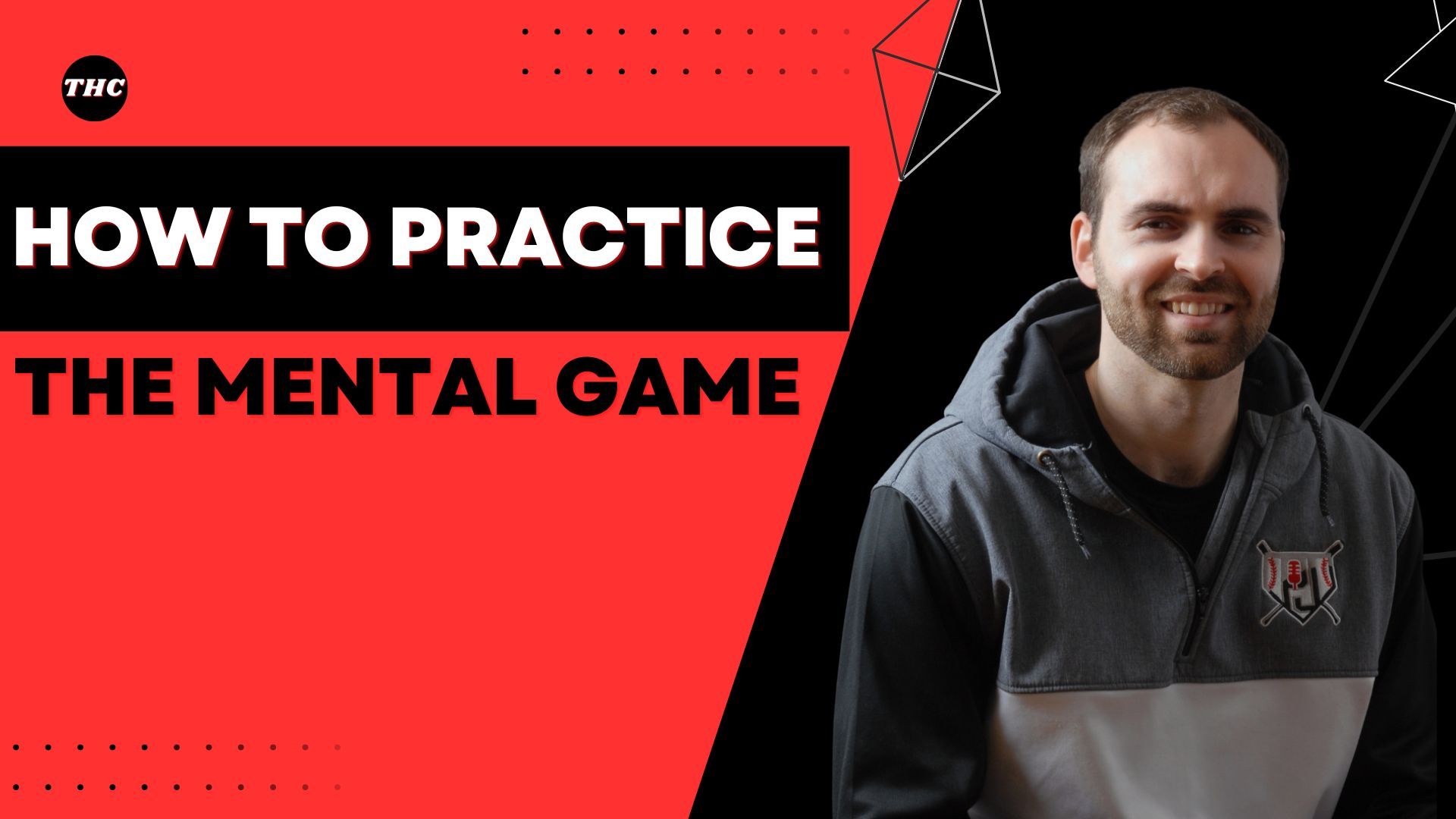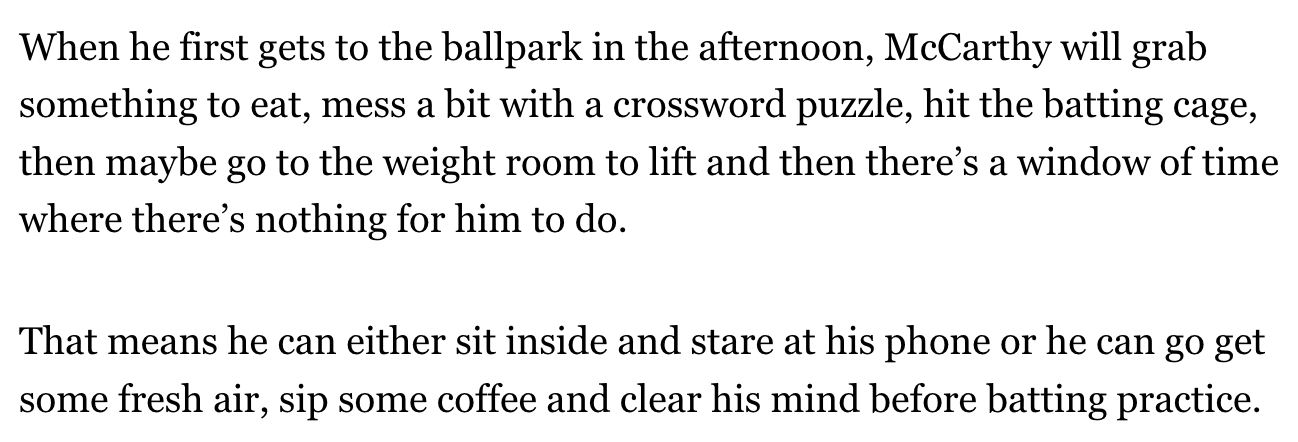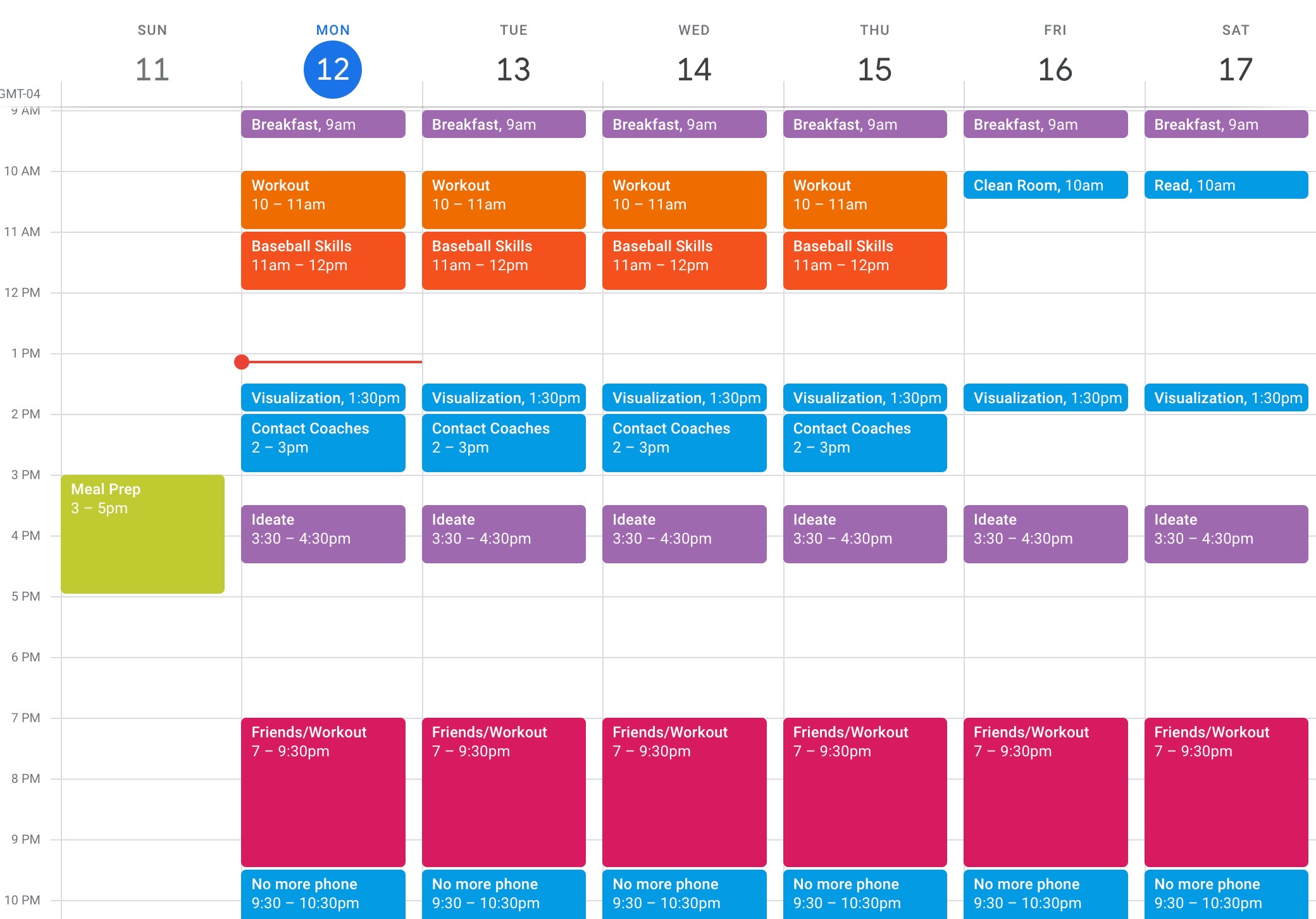The Mental Game
Jun 22, 2023

How to Practice the Mental Game
One of my college hitters recently asked me how he could “practice the mental game?”
My response:
“You already are.”
Whether players know it or not, how they live their day-to-day life determines their mindset when the game comes around.
I love hitting mechanics, analytics, and technology.
However, I don’t hear, “If only his mechanics would’ve been better at the plate, he would’ve made it to the big leagues.”
I normally hear:
- “He never could get out of his head.”
- “He overthinks everything.”
- “She couldn’t figure it out between the ears.”
That’s normally why players don’t reach their full potential, not mechanics.
Because that’s always been my belief, I am always thinking and trying to learn about different ways to help players with the mental game.
“Unfortunately,”… most think the mental game is something you deliberately practice.
Every Player Practices ‘The Mental Game:
- Self-Talk
- Nutrition
- Routines
- Sleep
- Environment
- Body Language
- Time management
All these things that I’ve listed above play a role in the headspace a player is in. Those things:
- Aren’t sexy.
- Won’t go viral on Twitter
But if players do them for months and years, they will increase their chances of going viral.
Nobody is going to know if the player is doing them or not.
Except…themselves.
As Ken Ravizza said:
“Control the controllable.”

Step 1: Want to be a pro? Act like one
Some players don’t take anything I listed above seriously; that’s okay. It’s their career.
However, they start caring a little bit more when they see the best players in the world taking all of those things seriously.
Here’s an example of Jake McCarthy of the Diamondbacks
Jake knows being on his phone for long periods isn’t good for him.
So, he creates a routine that forces him to go outside and walk around the park before the game instead.
Step 2: Systems
“You do not rise to the level of your goals; you fall to the level of your systems.” – James Clear.
The mental game is no different.
Day after day, your mind is going to be tired.
It’s going to want to take the easy way out.
If the player has a system in place, they’re more likely to push through.
Here is an example of a schedule I created with a college player this summer.

Step 3: Zone in vs. Zone out
Baseball & Softball can be very time-consuming.
There are several hours during the game, not to mention all the time leading up to the game.
It’s easy to let your mind wander…
And that’s okay.
One of the things I tell players I work with is to “zone in & zone out.”
Example: The pitcher throws a pitch, and the batter fouls it off.
Let your mind wander for a few seconds, and take a few steps away from your position.
Then step back in your circle (position) and lock back in as he comes set.
Players don’t need to be locked in for every second of the game.
A game is over 2 hours long.
How long do you need to be locked in?
Think of an AB.
Let's say a hitter sees an average of 6 pitches per AB.
30 seconds for each pitch
4 ABs a game
= 720 Seconds
= 12 minutes
A hitter needs to be locked in for 12 minutes.
That doesn’t seem like it’s much to ask.
Maybe they talk to a few teammates about the pitcher and zone in while they’re on deck for a minute; it’s not that much time that you must be locked in.
Summary:
1. Emulate the best.
2. Put systems in place.
3. Zone In vs. Zone Out
Here’s 2 ways I can help you:
Transfer Portal: I’m currently helping players in the transfer portal. If you know someone who needs help, please send me an email: jonesbaseballtraining@gmail.
Hitting Lessons: If you’re looking to become a better hitter, schedule a time to come and see me in Cincinnati, Ohio. Sign up here:
